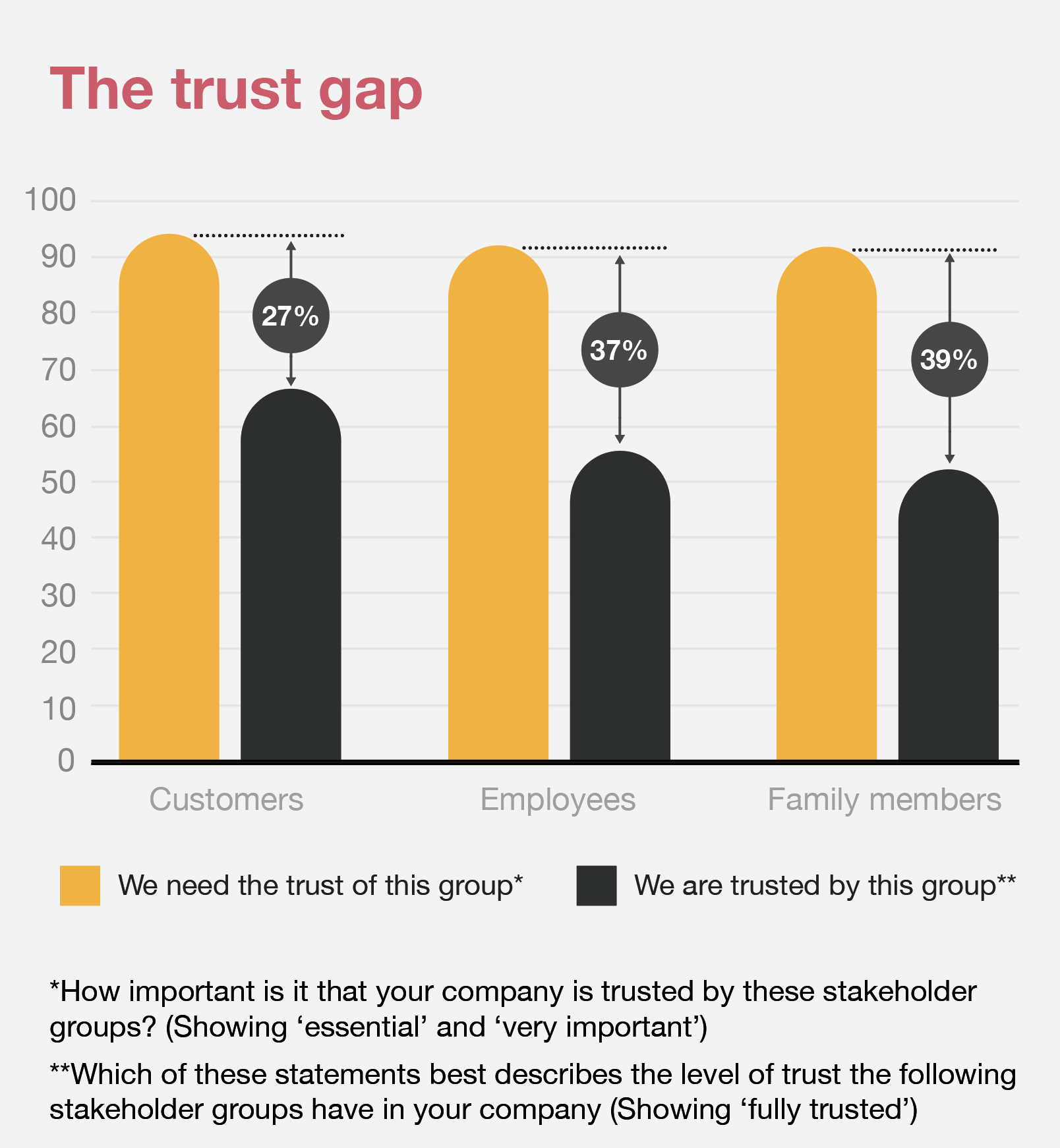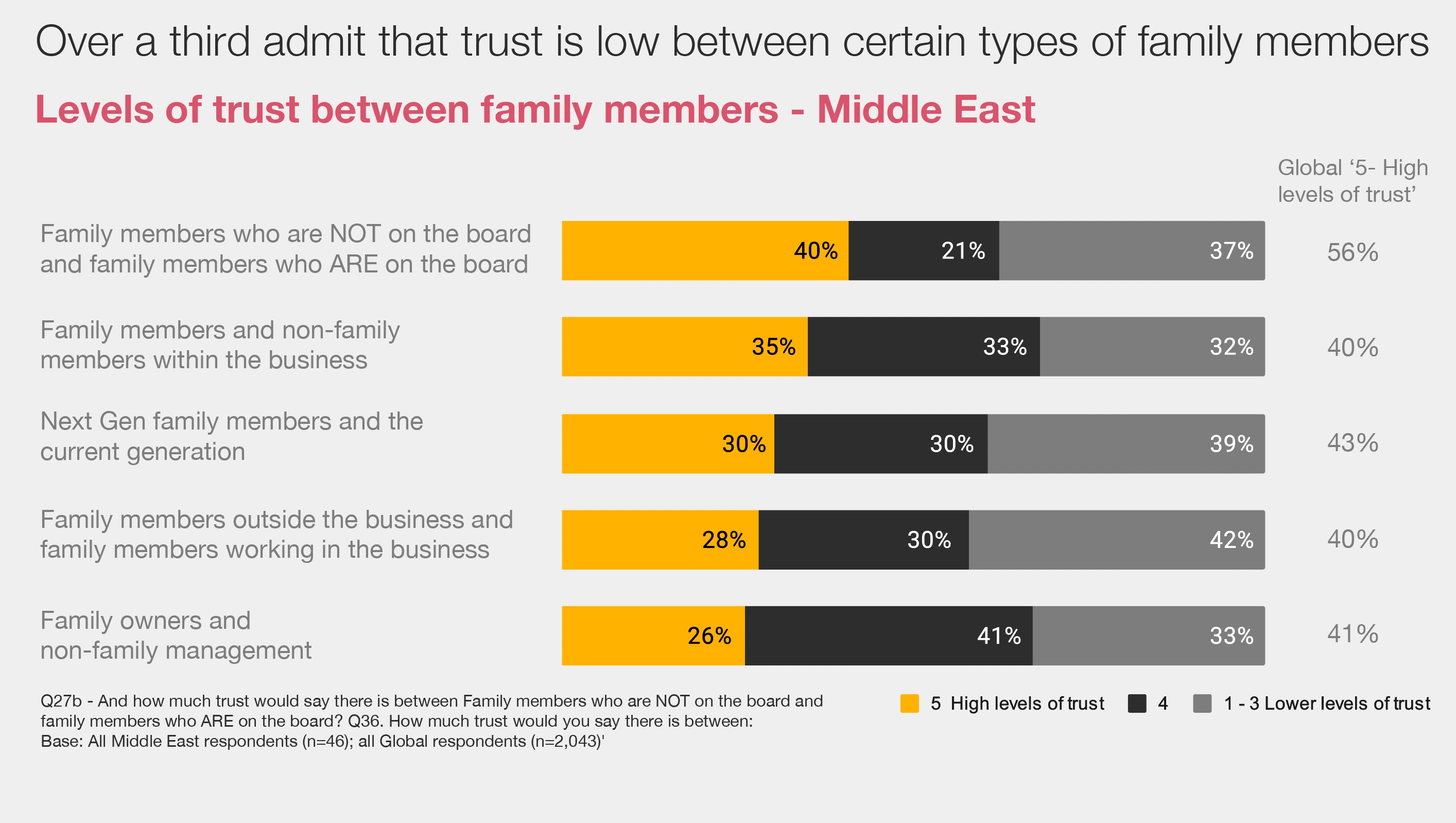Foreword
Our 2023 Family Business Survey was carried out at a time of significant change for family businesses worldwide, especially in the Middle East. The COVID-19 pandemic, which hit at a time of falling oil prices, tested family businesses in our region to their limits but they proved resilient and agile, adapting quickly and effectively to the pandemic and its legacy changes in customer and employee behaviour.
But there are more challenges ahead. The world is in geopolitical turmoil and supply chains remain disrupted by the war in Ukraine. Our region is evolving rapidly and radical changes are underway as nations explore new opportunities for their economic future. If family businesses in the Middle East are to maintain double-digit growth rates, they will need to navigate this uncertain and challenging world.
The trust that family businesses inspire, the foundation upon which much of their success is based, has the potential to give them a head start – and this is why this year’s survey focuses on this competitive advantage. But the nature of trust is changing; family businesses need to earn the trust of a wider group of stakeholders and in ways that go well beyond what they have done in the past. The good news is that trust can be built systematically.
This report outlines the new formula for trust and the results of the survey. Later this year, we will build on these results to look closely at the trust-based relationship between family businesses in the Middle East and their customers, employees, and family members. We will explain how to bridge the trust gaps that respondents to our survey have identified by prioritising what matters most to each group of stakeholders. Family businesses need to protect the trust they have earned as the world around them changes, and we will explore how.
We would like to thank everyone who contributed to this survey and report.
Adnan Zaidi


















